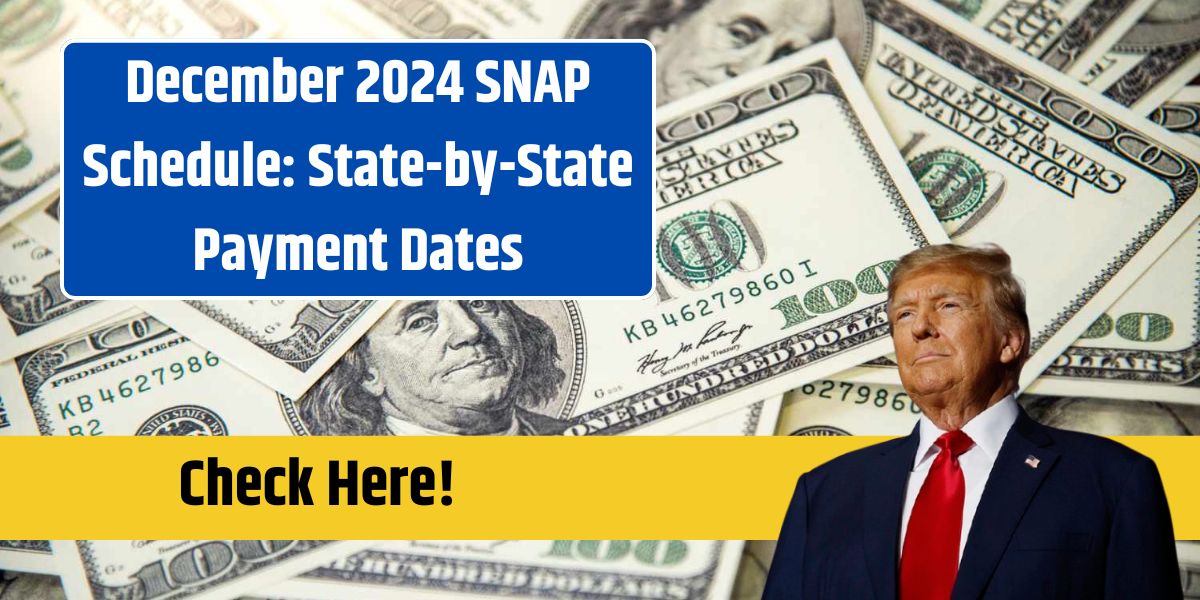As December approaches, Social Security recipients can look forward to scheduled payments that ensure their financial stability during the holiday season. The Social Security Administration (SSA) has refined its payment calendar to provide benefits promptly and accommodate holidays or weekends. If you are a Supplemental Security Income (SSI) beneficiary, you might receive an adjusted payment this year. Here’s what you need to know about the SSA’s schedule, eligibility requirements, and how these adjustments affect payments.
How the SSA Schedules Social Security Payments
The SSA carefully organizes its annual payment calendar to ensure benefits are delivered on time and without errors. The schedule accounts for holidays and weekends, dividing recipients into groups based on factors like their program, start date, and birth date.
Key Scheduling Principles
- Grouping by Start Date
- Before May 1997: Beneficiaries who began receiving benefits before this date are paid on the 1st of the month, regardless of the program.
- After May 1997: Recipients are further divided based on their program type.
- Program-Based Payments
- Supplemental Security Income (SSI): Payments are made on the 1st of the month unless the date falls on a weekend or holiday, in which case payments are issued earlier.
- Old Age, Survivors, and Disability Insurance (OASDI): Payments are distributed based on birth dates.
- Birth Date Schedule for OASDI BeneficiariesBirth Date RangePayment Date1st to 10thSecond Wednesday11th to 20thThird Wednesday21st to 31stFourth Wednesday
The $947 Payment for SSI Beneficiaries
SSI recipients are set to receive a $947 payment on December 31, 2024. While this payment is labeled as a December disbursement, it corresponds to the January 2025 benefit due to calendar adjustments. The SSA advances payments when scheduled dates fall on holidays or weekends to ensure recipients have access to funds without delays.
Why the $947 Amount?
The $947 payment reflects the Cost-of-Living Adjustment (COLA), which increases benefits to account for inflation. For 2025, the COLA is set at 2.5%, slightly boosting the average SSI payment from $943 to $947. These adjustments are critical in maintaining the purchasing power of Social Security benefits.
How to Qualify for SSI Payments
Eligibility for SSI benefits depends on meeting specific financial and personal criteria. Here are the general requirements:
- Age or Disability
- Be aged 65 or older, or qualify as disabled. Disability qualifications extend to both adults and children.
- Asset Limits
- Have less than $2,000 in assets as an individual or $3,000 as a couple.
- Income Limits
- Earn less than $1,971 per month as an individual or $2,915 as a couple.
- Other Considerations
- Additional financial support from government aid or other sources may count toward your total income, potentially reducing your benefits or affecting eligibility.
Adjustments to Eligibility Rules
The SSA has been simplifying its application process and eligibility criteria over time, making it easier for more individuals to access benefits.
Additional Information on Social Security Payments
COLA and Its Impact
The COLA ensures that Social Security benefits keep pace with inflation. For 2025, the 2.5% adjustment increases payouts slightly, helping recipients maintain their standard of living amid rising costs.
Understanding Payment Adjustments
When a payment date conflicts with a holiday or weekend, the SSA moves the payment forward. This proactive approach ensures recipients receive their benefits on time without system delays or complications.
FAQ:
1. Why am I receiving my January payment on December 31?
The SSA advances payments to avoid delays when the scheduled date falls on a holiday or weekend. The December 31 payment corresponds to your January 2025 benefit.
2. Who is eligible for the $947 SSI payment?
The payment applies to individuals enrolled in the SSI program. Eligibility is based on age, disability, income, and asset limits.
3. How is the $947 amount determined?
The payment reflects the average SSI benefit after the 2.5% COLA adjustment for 2025.
4. What happens if my income exceeds the SSI limits?
If your income surpasses the threshold, your SSI benefits may be reduced or discontinued.
5. Can I qualify for SSI if I’m already receiving OASDI benefits?
Yes, you may qualify for both programs if you meet the eligibility requirements for SSI in addition to receiving OASDI benefits.





















